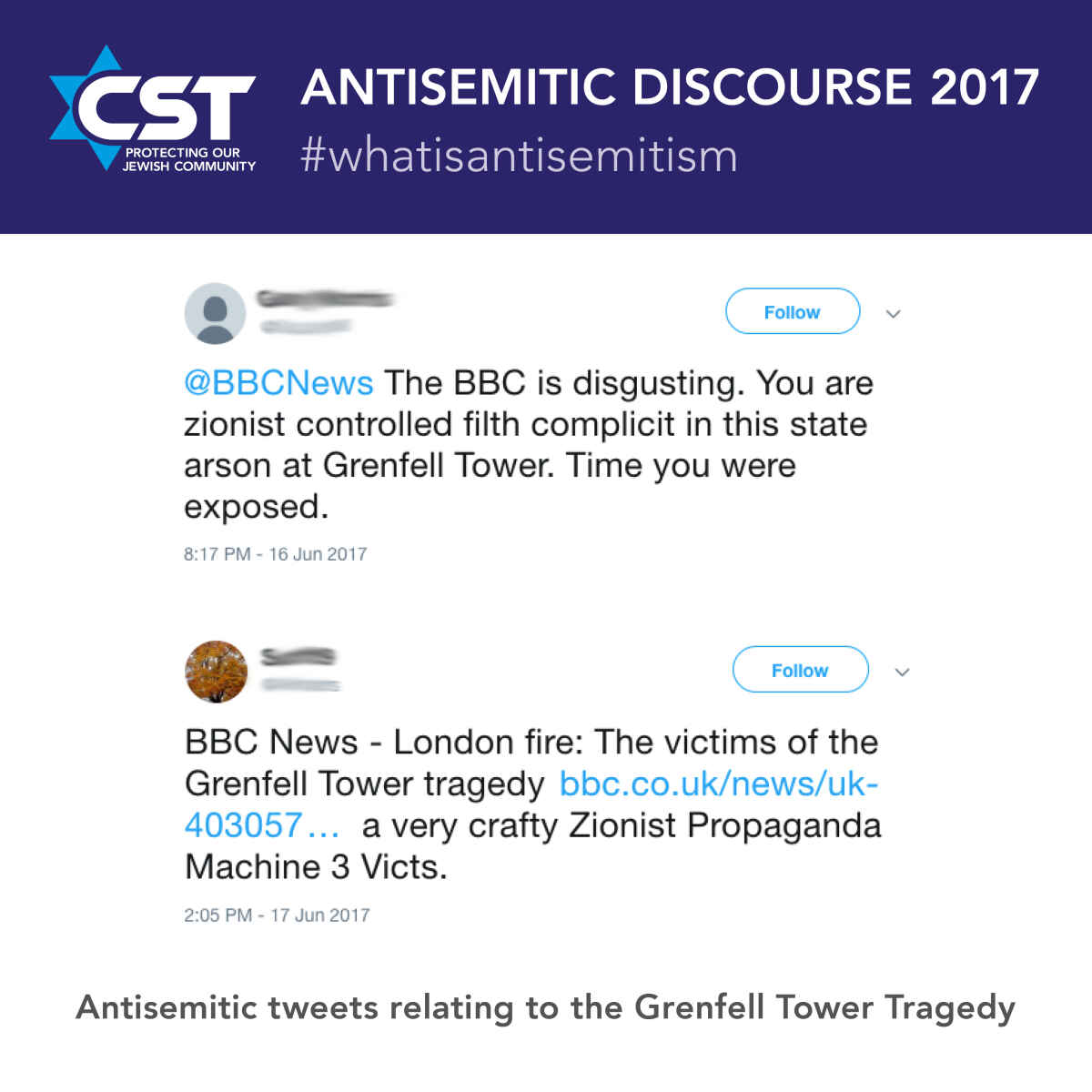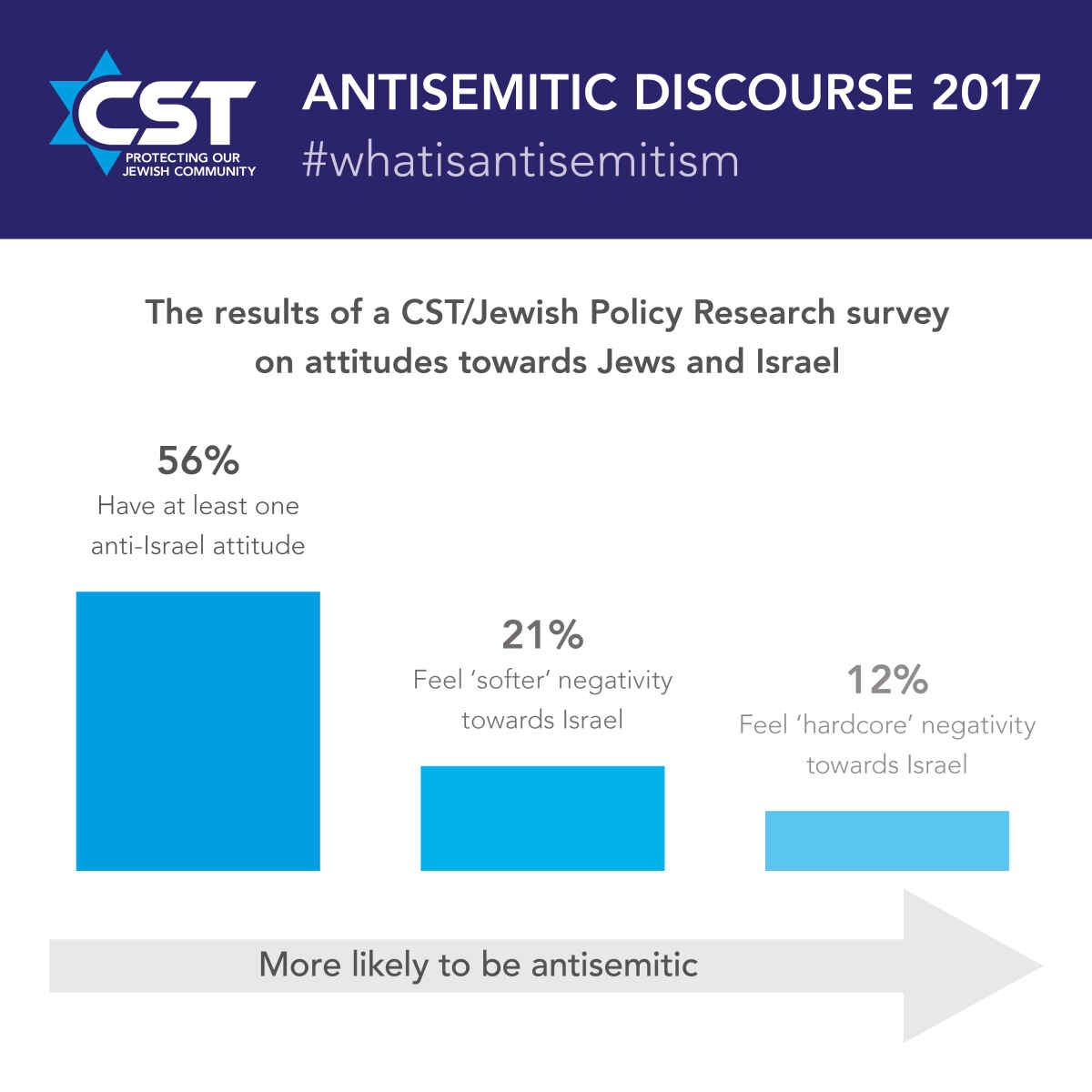CST Blog
Antisemitic Discourse Report 2017
29 November 2018
CST’s new report, Antisemitic Discourse in Britain 2017, released today, looks at the presence of antisemitic ideas or language, and discussion of antisemitism in general, in mainstream media, politics and public debate last year. Explicit prejudice or hostility towards or about Jews, simply for being Jewish, is rarely voiced in British public life; but the expression and transmission of antisemitic attitudes about “Zionists” or Israel, including conspiracy theories and the abuse of Holocaust memory, are more common, and on occasion were even defended as a legitimate part of mainstream politics during 2017.
The controversy over antisemitism in the Labour Party endured throughout 2017, having come to national prominence in the previous year (it would also continue into 2018). But antisemitism in political life was not confined to ongoing Labour antisemitism row. People on different parts of the political spectrum were accused of talking about the “Jewish lobby” or “Israel lobby” in terms that evoked antisemitic conspiracy theories. Examples of this phenomenon involved both Nigel Farage and the Al Jazeera TV network in 2017.
Social media and the internet played an increasingly dominant role in the transmission and reinforcement of antisemitic ideas and beliefs, during 2017. Examples of antisemitism in Labour Party supporting Facebook groups emerged, and the groups played a particular role in members reassuring each other that allegations of antisemitism in the party were false or exaggerated.
During 2017, reactions to events in the Middle East, or ‘trigger events’, provided an environment in which antisemitic attitudes or stereotypes were sometimes invoked. One trigger for this was the announcement by US President Donald Trump that he intended to move the US Embassy in Israel from Tel Aviv to Jerusalem.
The Grenfell Tower tragedy that took place in June 2017 was used by conspiracy theorists from different backgrounds to claim that “Zionists” or Jews were directly or indirectly responsible for the fire that killed 72 residents of the tower.

The largest-ever survey of British public attitudes to Jews and to Israel, conducted by the Jewish Policy Research Institute and CST was published in 2017. This found that most people in Britain said they felt positively about Jews, but that antisemitic attitudes were relatively widespread. It also provided statistical evidence about levels of antisemitism within religious and political subgroups.

In addressing the phenomenon of antisemitic discourse in public life, CST recognises the complexity and nuance often present in efforts to identify antisemitic speech that may come from people who are not consciously or knowingly antisemitic, and who may not understand or appreciate the impact their words can have. CST distinguishes between this kind of language and antisemitic hate incidents, which are detailed in the separate Antisemitic Incidents Reports.
Read More

Antisemitic Incidents Report January-June 2025
6 August 2025

Love since 7 October
14 February 2025

Antisemitic Incidents Report 2024
12 February 2025